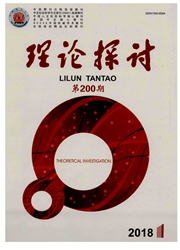

 中文摘要:
中文摘要:
与东西方哲学相比,俄罗斯哲学虽形成相对较晚,但以独特的问题意识、致思理路、表达方式等在世界哲学舞台上占据着特殊的位置。俄罗斯哲学在长期发展过程中,呈现出既不同于重逻辑、思辨与理性特质的古希腊哲学传统,也不同于重顿悟、冥想与伦理特质的东方哲学传统,而是力图在东西方哲学之间,在理性与信仰、世俗与神圣、神性与人性、个体与集体之间寻求某种微妙的平衡。整体而言,俄罗斯哲学具有生命经验、本体主义、直觉主义、神秘主义、末世主义、人类中心主义等特征。俄罗斯哲学中这一特征的形成,既与俄罗斯哲学意识觉醒相对较晚有关,也与俄罗斯独特的地理环境和东正教传统密切相关。
 英文摘要:
英文摘要:
Compared with eastern and western philosophy, Russian philosophy which has a dominant role on the stage of world philosophy with its unique problem awareness, thinking methods and expressing way took shape later than them. In the process of long - term development, Russian philosophy strived to seek for a kind of subtle balance between east and west, between reason and belief, between secularity and sanctity, between deity and humanity, between individuality and collectivity, which is quite different not only from ancient Greek philosophy centered on logic, speculation and rationality, but from eastern philosophical tradition focusing on epiphany, meditation and ethic. As a whole, Russian philosophy makes a feature of life experience, ontology, intuitionism, mysticism, eschatology, anthropocentrism and so on. The form of this feature is closely related to the later awakening of Russian philosophical aware- ness, Russian geographical environment and the Orthodox Eastern Church.
 同期刊论文项目
同期刊论文项目
 同项目期刊论文
同项目期刊论文
 期刊信息
期刊信息
